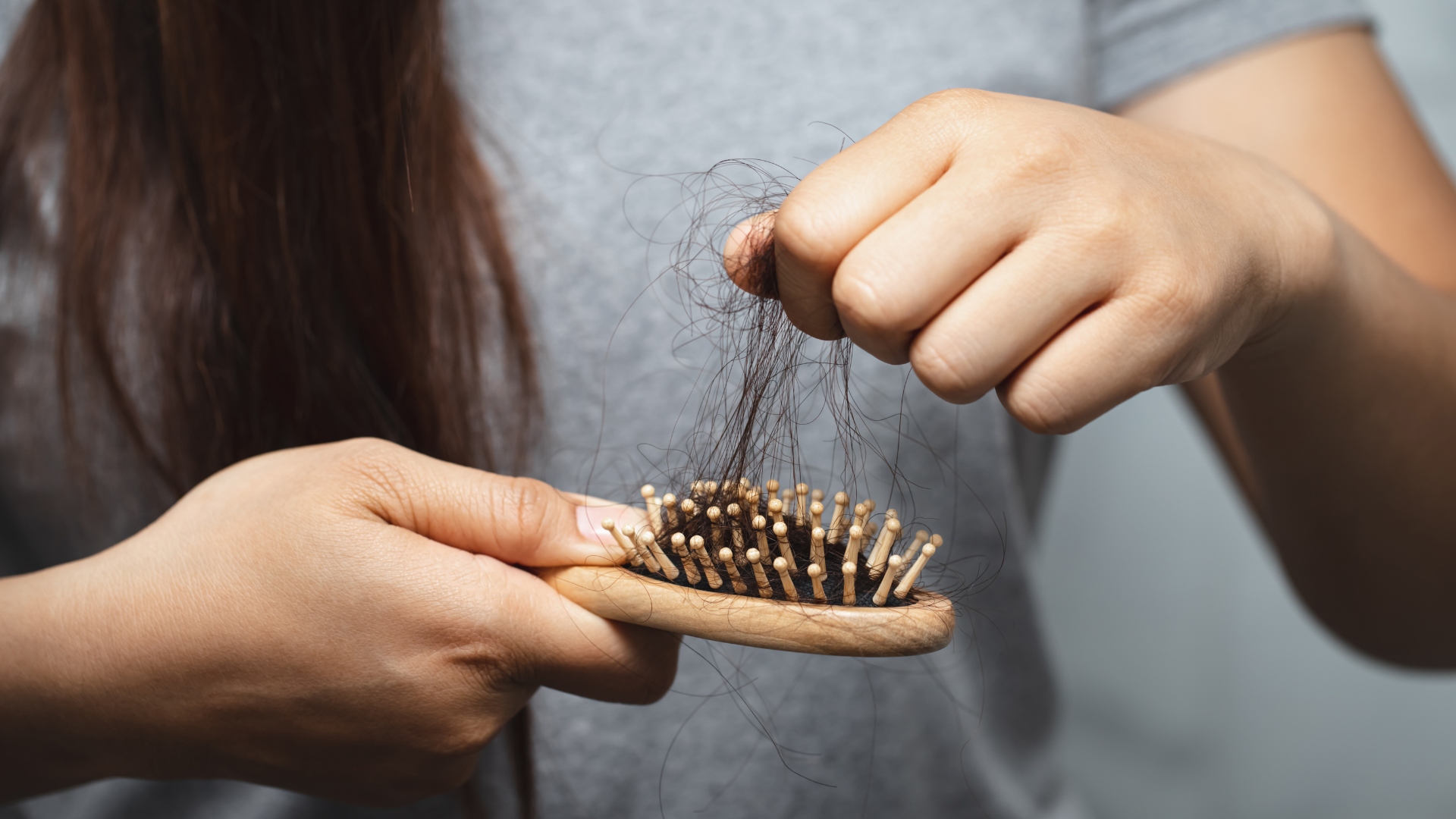
Hair loss can feel stressful and overwhelming, but it’s important to remember that in many cases, it can be prevented, slowed down, or even reversed with the right care. Whether you are experiencing mild hair thinning or severe hair fall, the key is to understand the root cause and take consistent action.
Table of Contents
Common Causes of Hair Loss
-
Genetics (Hereditary Hair Loss) – Also known as androgenetic alopecia, it is the most common cause of baldness in both men and women.
-
Hormonal Changes – Pregnancy, menopause, thyroid imbalance, and PCOS can trigger excessive hair fall.
-
Nutritional Deficiencies – Lack of protein, iron, vitamin D, biotin, or zinc can weaken hair roots.
-
Stress & Anxiety – High-stress levels affect hair growth cycles and lead to temporary shedding.
-
Unhealthy Scalp – Dandruff, fungal infections, or clogged follicles reduce hair growth.
-
Chemical Treatments – Excessive use of dyes, bleach, or heat styling damages hair follicles.
-
Medical Conditions & Medications – Autoimmune diseases, chemotherapy, and certain medicines may lead to hair loss.
Effective Ways to Stop Hair Loss
1. Improve Your Diet
-
Eat a balanced diet rich in protein, omega-3 fatty acids, and vitamins.
-
Include foods like eggs, spinach, nuts, seeds, fish, avocados, and berries.
-
Stay hydrated, as dehydration weakens hair strands.
2. Maintain a Healthy Scalp
-
Wash your scalp regularly with a mild, sulfate-free shampoo.
-
Massage your scalp with warm coconut oil, castor oil, or onion juice to improve blood circulation.
-
Avoid scratching or using harsh products that irritate the scalp.
3. Reduce Stress Levels
-
Practice yoga, meditation, and breathing exercises.
-
Get 7–8 hours of proper sleep daily.
-
Physical activity like walking, gym, or sports improves circulation and reduces stress.
4. Natural Home Remedies
-
Aloe Vera: Soothes the scalp and promotes hair regrowth.
-
Onion Juice: Rich in sulfur, helps in regenerating hair follicles.
-
Fenugreek Seeds (Methi): Strengthens roots and prevents thinning.
-
Green Tea Rinse: Contains antioxidants that support healthy growth.
5. Limit Heat & Chemical Damage
-
Reduce blow-drying, straightening, and curling.
-
Avoid frequent hair coloring and bleaching.
-
Always use a heat protectant spray before styling.
6. Medical & Professional Treatments
-
Minoxidil (Topical Solution): FDA-approved for treating pattern baldness.
-
PRP Therapy (Platelet-Rich Plasma): Involves injecting your own blood plasma to stimulate follicles.
-
Laser Hair Therapy: Encourages growth with low-level laser treatment.
-
Hair Transplant Surgery: A long-term solution for advanced baldness.
Habits to Avoid
-
Over-washing hair with harsh shampoos.
-
Tight hairstyles like ponytails or buns that strain roots.
-
Skipping meals or following extreme diets.
-
Excessive smoking and alcohol consumption.
Long-Term Tips for Healthy Hair
-
Use a wide-toothed comb to avoid breakage.
-
Trim split ends regularly.
-
Protect hair from sun damage and pollution.
-
Take supplements like biotin, zinc, and omega-3 (only after consulting a doctor).
Stopping hair loss is not about quick fixes—it’s about consistent care, a healthy lifestyle, and treating the root cause. Natural remedies, combined with a balanced diet and professional treatments (if needed), can restore hair health and confidence.
Healthy hair is a reflection of a healthy body and mind. Start today, and you’ll notice positive changes in the long run.


